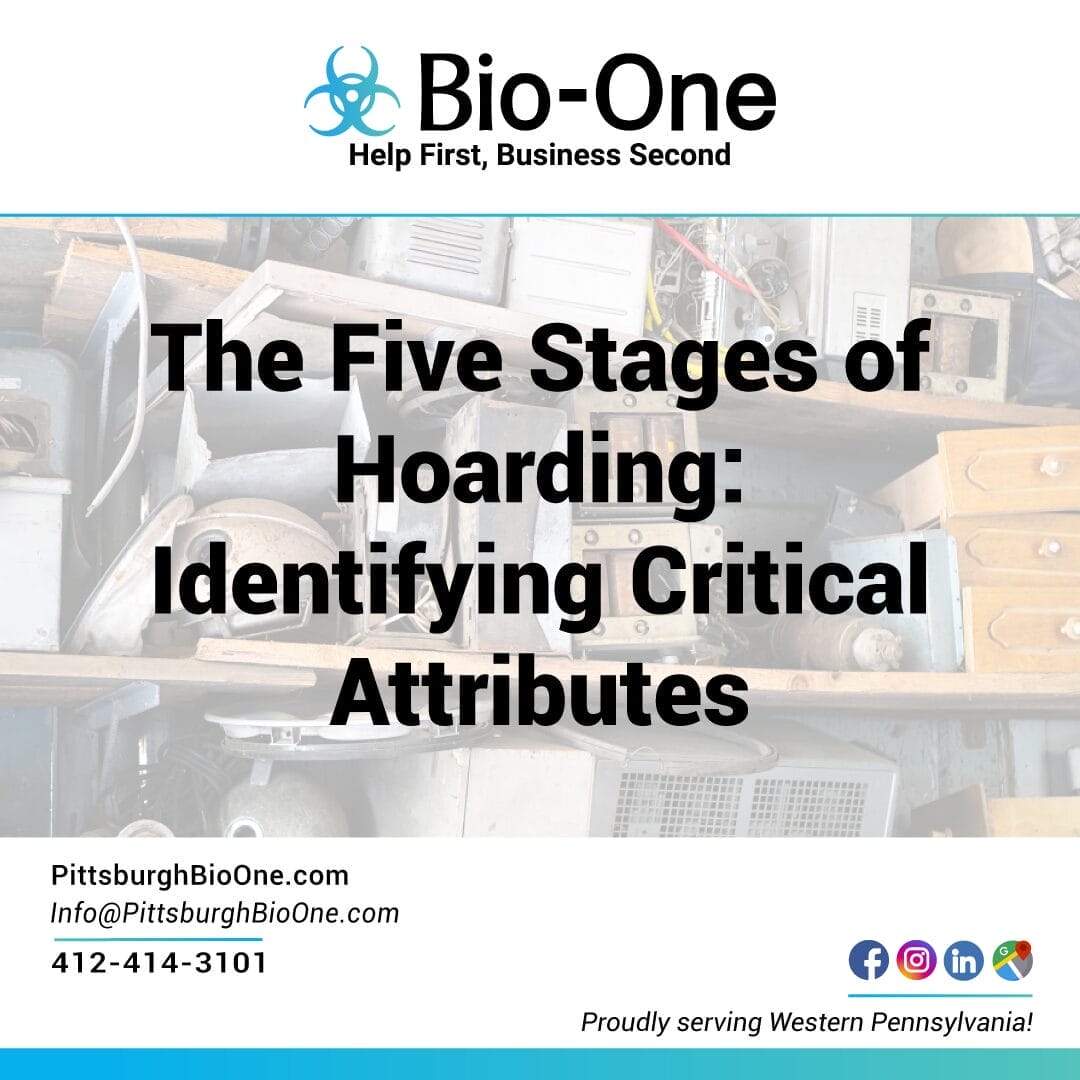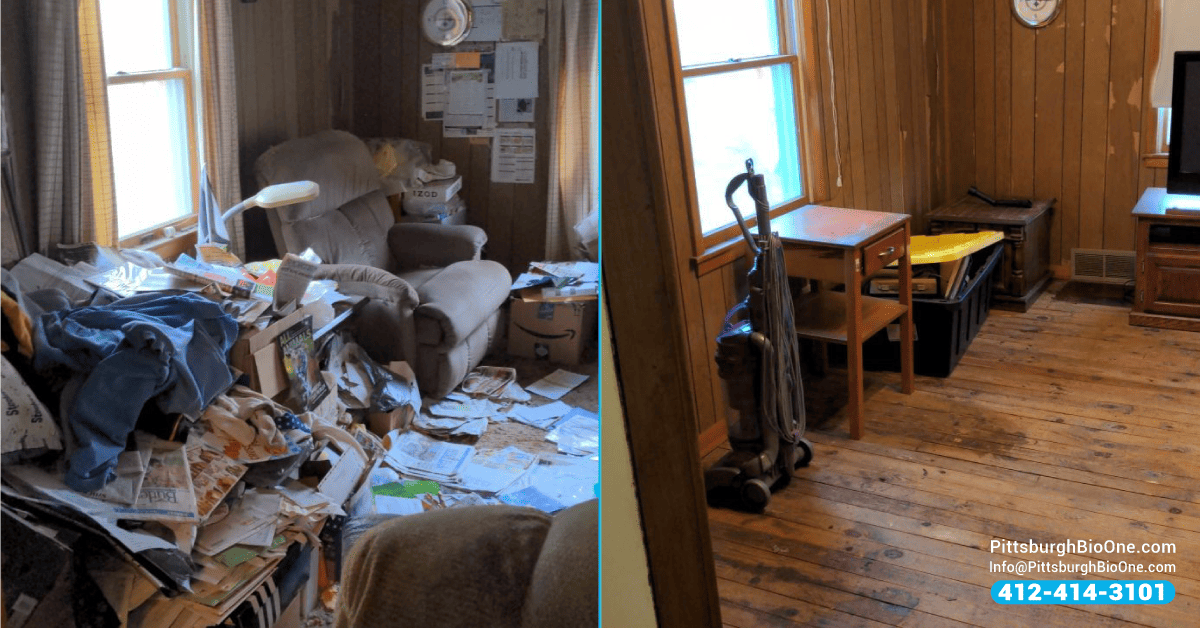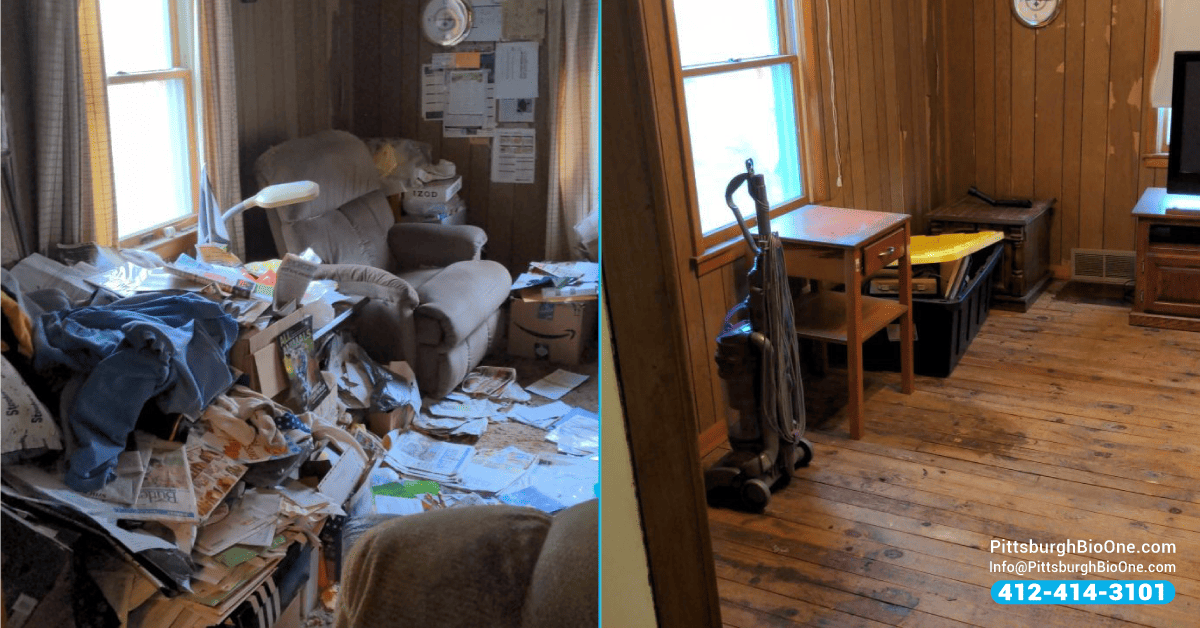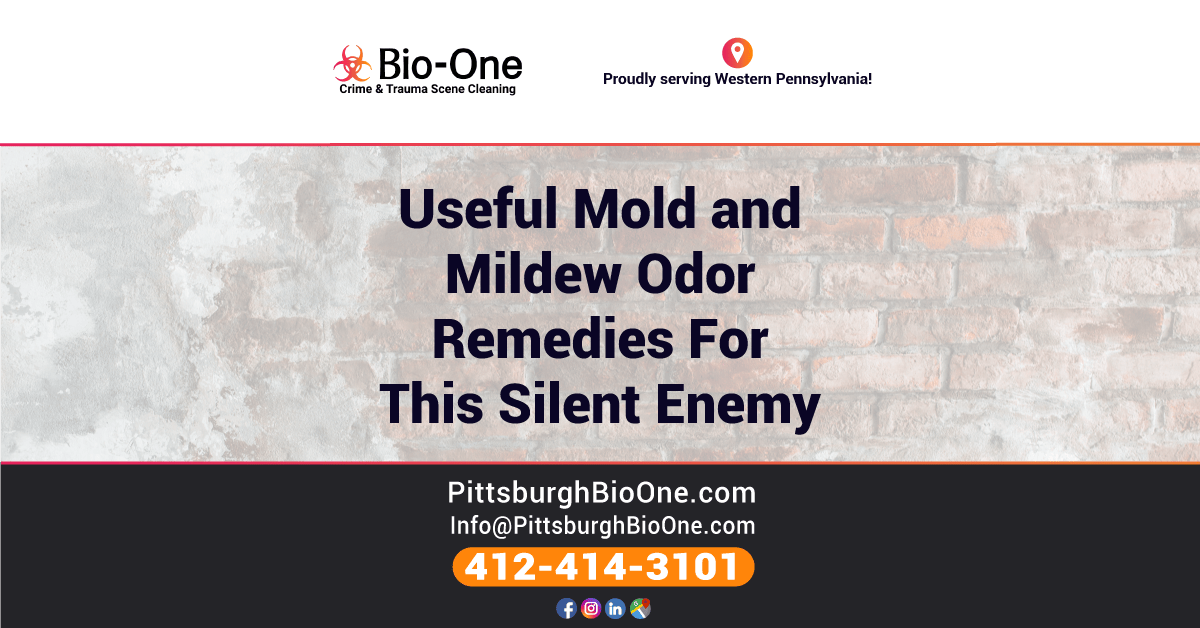
Hoarding, a mental health condition often stigmatized but little understood, is a gradual process that can significantly impact a person's life, their family, and potentially the entire community. In this comprehensive guide, we break down the five stages of hoarding, shedding light on critical attributes in each phase and offering strategies for intervention and support.
Whether you're a homeowner trying to prevent hoarding tendencies, a professional addressing hoarding with a client, or a concerned loved one, understanding these stages is the first step to tackling this challenging issue!
For many, hoarding brings to mind the reality television shows that raise awareness about this enigmatic disorder. But hoarding goes beyond what's portrayed on screen; it's a behavioral pattern that begins subtly and can evolve into a crippling situation. At the heart of hoarding is the difficulty in parting with possessions, often driven by an attachment that others might find irrational or inexplicable. Hoarders don't simply have cluttered homes — they experience a deep emotional conflict when faced with the prospect of discarding items.
Take a look at the five stages of hoarding. We hope this information serves as a roadmap for understanding and addressing hoarding behaviors in someone you know or care about.
The first stage of hoarding usually starts with a seemingly harmless habit: acquiring items. This behavior isn't problematic in and of itself, but for individuals with hoarding tendencies, it can quickly become an obsession. Compulsive buying or acquisition is often a source of comfort, control, or even excitement for hoarders. Whether it's through shopping, collecting free items, or inheriting possessions, these actions serve a psychological need, providing temporary relief from anxiety, loneliness, or other underlying issues.

Acquired items lead to the second stage: clutter. The transition from acquisition to clutter is gradual and not often recognized until living spaces become difficult to use for their intended purpose. The accumulation of possessions encroaches on daily living, often spilling into hallways, living rooms, kitchens, and other communal areas. At this stage, organizing these items becomes a herculean task, and their sheer presence can become overwhelming.
Clutter can lead to increased stress and anxiety, as well as a sense of helplessness in those trying to live amongst it. For individuals with hoarding tendencies, every item has a perceived value or use, making decisions about what to keep and what to discard increasingly difficult. The presence of clutter also hampers basic household functions such as cooking, cleaning, and personal hygiene.
The third stage of hoarding sees a significant increase in the accumulation of items. At this point, the compulsion to acquire is fueled by the inability to sort through or discard anything, resulting in an overabundance of possessions. The living areas become fully engulfed, and every available nook and cranny is filled, often to the point of structural unsoundness.
Individuals at this stage often cite the 'just in case' rationale for keeping items. The fear that they might need something they've thrown away is almost paralyzing, so they feel compelled to keep everything. This behavior is reinforced by the perceived value and utility of the items, which further justifies their retention.

At this point, professional organizers and psychologists specializing in Hoarding Disorder can provide the necessary support. Cognitive-behavioral therapy (CBT), with a focus on exposure and response prevention, can help hoarders challenge and change their thought patterns and compulsions before the situation becomes even more overwhelming.
In the fourth stage, the hoarding behavior begins to have a noticeable impact on the person's ability to function in their daily life. The clutter and excessive accumulation make it almost impossible to lead a typical existence within their home. Basic activities such as bathing, cooking, using the bathroom, and even sleeping can become challenging or impossible.
The decline in functionality is often accompanied by a breakdown in personal hygiene. Hoarders living in unsanitary conditions can face an increased risk of illness and infestation, as clutter becomes a harbinger for pests and bacteria. Health professionals may need to become involved to address any possible physical health issues related to living in such environments.
Functional impairment can be linked to other mental health challenges, such as depression, anxiety, and other mood disorders. For many hoarders, their living conditions become a visible manifestation of their inner turmoil and a barrier to receiving essential care and support.

This is the convergence of all the previous stages of hoarding, culminating in a setting that poses not just psychological and social risks, but grave health and safety risks as well. By this point, the living environment is likely to be so hazardous that it can result in accidents, fires, and even death.
Common health risks at this stage include respiratory issues from living in clutter that prevents proper air circulation, as well as the spread of infectious diseases due to poor sanitation. Structural issues in the home can also pose dangers, and the hoarder's ability to receive emergency assistance can be severely compromised.
Hoarders in this stage might face legal consequences, especially if their home becomes a matter of public health. Their personal and social networks are often stretched to the breaking point, and the individual may become increasingly isolated as their situation deteriorates.

Understanding the stages of hoarding is vital for anyone affected by this condition. From individuals to family members, mental health professionals, and community services, a collective and informed approach can support those struggling with hoarding to reclaim their lives. Remember, the road to recovery is often long and filled with challenges, but help is available.
At Bio-One of Pittsburgh, we specialize in the cleaning and restoration of hoarder houses, working with compassion and discretion to ensure a safe and habitable home for those affected. Call our specialists and get started with help for any of the previously described stages of hoarding! It's never too soon to ask for help.
Bio-One of Pittsburgh is always ready to assist you in unexpected situations. Our expert specialists are always ready to assist you in dealing with highly pressurized situations that may be emotionally and physically draining, allowing you to focus on other vital activities while healing in a sanitary environment. Locally owned and operated, we provide the following:
Bio-One works closely with victim support centers nationwide and local authorities, communities, emergency services personnel, hoarding task forces, apartment communities, insurance companies, and other organizations to accomplish each customer's most efficient and superior service possible.
Many crime scene cleanup companies may face unexpected, unfortunate life events. Still, Bio-One is the right choice because of our expertise and profoundly caring and discreet specialists.
We are proud members of the NAPO Pittsburgh - National Association of Productivity & Organizing Professionals!
Bio-One of Pittsburgh serves the following Pennsylvania counties: Allegheny County, Washington County, Beaver County, Butler County, Armstrong County, Westmoreland County, Lawrence County, Greene County, Fayette County, and Mercer County.
We also serve the following cities and surrounding communities: from Allison Park all the way to Creighton, Crescent, Cuddy Curtisville, Millvale, Monroeville, Oakmont, Pitcairn, Pleasant Hills, Plum, Port Vue, Presto, Rankin, Rennerdale, Rural Ridge, Russellton, Sharpsburg, South Park to Springdale, we are ready to help you.

Are you struggling with keeping your home clean and tidy due to hoarding? Do you feel like you're constantly cleaning, but nothing ever changes? Know this: you are not alone. According to the National Institute of Mental Health, hoarding is a complex problem that affects an estimated 2-6% of the population. And while there's no easy fix, professional help from a company like Bio-One can make all the difference. Keep reading to learn more about our comprehensive approach to cleaning hoarding.
Cleaning and decluttering your home is essential to a successful cleaning regimen. As daunting as the prospect may seem, the first step to cleaning out your space can be done with relative ease. Before you start cleaning hoarding, focus on gathering all the trash in your living environment, eliminating any unnecessary clutter that could prevent you from cleaning effectively.
You can start by throwing away old newspapers, empty fast food containers, and anything else you don’t need or want. Check all hidden spots where hoarding might occur, such as closets and cabinets, and take out items that don't belong there. Cleaning out this trash will help make cleaning other parts of your home much easier!
Once hoarding cleanup is done and all the trash is cleared out, it's time to tackle the dirt and grime that has built up over time. Scrubbing floors, dusting surfaces with a damp cloth, and vacuuming carpets are all effective ways to remove any dirt that might have accumulated amongst previously hoarded items. When everything shines brighter than before, you can rest easy knowing that your hoarding cleanup job was successful!
Clutter can make any space look disorganized and uninviting. Taking the time to declutter can help you reclaim your space and make cleaning much easier. Start by going through the items in your living area, removing anything that hasn't been used or worn in a while, such as clothes, books, furniture, and knick-knacks. It's important to remember that cleaning is not hoarding - if something isn't useful for you anymore, it's best to let it go. You'll soon find that with a bit of effort, your home will feel lighter and more organized than before.
Now that you've cleared out the clutter, it's time to make the space work for you. You can organize it in a way that makes sense for your space and needs. Think about what kind of storage solutions make the most sense - maybe installing some shelving or creating designated spots for things like keys and bills – and then get creative! You can turn an unused room into an organized, productive area with little effort.
A clean home is important for both your physical and mental health, so getting rid of any clutter or dirt that might be around is essential. However, decluttering and cleaning can be difficult, especially if you're living in a space that's been hoarded for a long time. That's where our team comes in! Our Pittsburgh hoarding cleaning technicians are highly-skilled professionals with unmatched compassion, discretion, and experience for the most challenging hoarding cleaning jobs.
If you're feeling overwhelmed by the thought of decluttering your home, give us a call. We'll be happy to help you start creating a healthy living space..

Bio-One of Pittsburgh is always ready to assist you in unexpected situations. Our expert specialists are always ready to assist you in dealing with highly pressurized situations that may be emotionally and physically draining, allowing you to focus on other vital activities while healing in a sanitary environment. Locally owned and operated, we provide the following:
Bio-One works closely with victim support centers nationwide and local authorities, communities, emergency services personnel, hoarding task forces, apartment communities, insurance companies, and other organizations to accomplish each customer's most efficient and superior service possible.
Many crime scene cleanup companies may face unexpected, unfortunate life events. Still, Bio-One is the right choice because of our expertise and profoundly caring and discreet specialists.
We are proud members of the NAPO Pittsburgh - National Association of Productivity & Organizing Professionals!
Bio-One of Pittsburgh serves the following Pennsylvania counties: Allegheny County, Washington County, Beaver County, Butler County, Armstrong County, Westmoreland County, Lawrence County, Greene County, Fayette County, and Mercer County.
We also serve the following cities and surrounding communities: from Allison Park all the way to Creighton, Crescent, Cuddy Curtisville, Millvale, Monroeville, Oakmont, Pitcairn, Pleasant Hills, Plum, Port Vue, Presto, Rankin, Rennerdale, Rural Ridge, Russellton, Sharpsburg, South Park to Springdale, we are ready to help you.

Hoarding cleanouts can be a difficult and overwhelming process for both the individual who is hoarding and their family and friends. It is essential to have a clear strategy in place and execute it well. In this blog post, we are going to cover the top 10 hoarding cleanout tips that you need to know before starting the process. Remember Bio-One of Pittsburgh can assist in these situations.
Disclaimer: Please note that we at Bio-One of Pittsburgh are a professional biohazard and hoarding cleanup company. While we strive to provide helpful information and resources on hoarding, we are not mental health professionals. Our content is intended to raise awareness about the complexities of hoarding and to offer practical cleanout tips. Please consult with a mental health professional for advice and treatment options related to hoarding behaviors.
Bio-One of Pittsburgh



Following our hoarding cleanout tips will help you accomplish the goal of ultimately helping your loved one. Starting with a plan, breaking tasks into small steps, and having a disposal plan are all important components of the process. Don’t hesitate to seek professional help if necessary. Bio-One of Pittsburgh is here to provide support through the entire process.

Gross filth can be defined as extreme clutter, uncleanliness, and disrepair that affect the health and safety of those in the environment. Many situations can lead to gross filth, and in most cases, professional cleaning services are required to restore the affected area to a healthy state. Whether it's hoarding, mold and water damage, sewage backups, or crime scenes, dealing with gross filth can be overwhelming and dangerous. In this blog post, we'll explore situations that often call for gross filth cleaning services.

Crime scenes can be traumatic and can leave behind bodily fluids and other biohazardous materials. Blood spills and other hazards from crime scenes can pose health risks to those exposed to them, including viruses and bacteria. Exposure to blood and bodily fluids may result in the spread of diseases and infections, making it essential to have proper cleanup procedures in place.

Hoarding affects a person's ability to discard or part with possessions. It can lead to the accumulation of clutter and debris that can quickly become a safety hazard. Hoarded homes are often filled with a variety of items, including garbage, food waste, and potentially dangerous materials like chemicals or biohazards. Hoarding also poses a fire risk as the clutter can easily fuel a fire and make it difficult for occupants to escape. In severe cases, hoarding can lead to structural damage to the property.
Learn more: Common Hazards in Hoarded Houses & How Bio-One Can Help

Mold growth can occur in humid and damp environments, leading to odors and respiratory problems. Water damage from floods, leaks, or sewage backups can also lead to the growth of mold, which can pose a serious threat to health if not handled immediately.
Learn more:4 Helpful Tips on House Restoration for Water Damage
Sewage backups can occur from clogs, pipe bursts, and flooding, and can lead to biohazard risks, water damage, and odors. These unwanted events may contain harmful pathogens that can cause serious diseases if not handled professionally.
Animal infestations such as rodents or insects can cause extensive damage to property and pose serious health risks. These pests can carry diseases, spread bacteria, and contaminate food sources. Proper cleanup and removal of any infestations is necessary to ensure the safety and well-being of occupants.
Other situations that can call for gross filth cleaning services include fire damage, animal hoarding, and chemical spills.
Learn more: CDC - Biological Hazards

At Bio-One of Pittsburgh, we can handle all types of gross filth cleaning situations. Our team follows strict protocols and measures to remove any harmful substances and materials and sanitize the areas. We understand the sensitive nature of these situations and work with compassion and discretion. Contact us for a free consultation in the Western Pennsylvania Area today!

If you have a loved one who is struggling with Hoarding Disorder, you may feel overwhelmed and unsure about how to help them. With the right approach and support, you can help them clean their hoarded house and improve their living conditions. In this blog post, we will discuss some helpful tips on how to help a loved one with hoarding and their home.

The first step in helping a loved one with Hoarding Disorder is to educate yourself about this condition. Many people may not understand that hoarding is not just a matter of being disorganized or messy. It's a mental condition that often requires professional treatment. Do some research, read books, and articles about HD, and try to understand its causes and symptoms. Understanding the disorder will enable you to approach your loved one with empathy and provide them with the right support.

People with HD may experience overwhelming anxiety and stress when asked to throw away their possessions. As a result, trying to help them without professional support may be challenging and ineffective. Encourage them to seek professional help, like a therapist specializing in hoarding and other forms of Obsessive-compulsive Disorder. Therapists can provide them with the right tools to manage their anxiety and work through their compulsions.
Hoarding can make it challenging for people to keep their homes clean and organized. Offering practical support to help them declutter is a great way to help. You can offer to help them sort their belongings, suggest which items to keep or discard, or help them find the right storage solutions. This process may be slow and challenging, so be patient and respectful of your loved one's pace.

Cleaning a hoarded house is just one part of the recovery process. Those struggling with hoarding need ongoing emotional support during and after the cleanup process. Help them create healthy habits, encourage them to stick with their therapy appointments, and offer to check in on them regularly!
As for their homes, they can become unsanitary and dangerous, with hazards like mold growth, pest infestations, or fire hazards. In some cases, the home may require professional cleaning to restore it to a safe and healthy condition. Hiring a professional hoarding cleanup company like Bio-One can ensure that the cleaning process is done safely, respectfully, and with discretion.
Hoarding can be challenging to manage, and helping a loved one can be overwhelming. However, armed with knowledge, empathy, and the right resources, you can assist your loved one in cleaning their hoarded home and transforming their environment into a clean, safe, and healthy space. Remember, every step towards recovery is a positive change.
If the home requires professional cleaning, Bio-One of Pittsburgh can help provide discreet, mindful, and respectful home restoration services.

Animal hoarding is a complex issue that affects not just the animals in question but also the people in their lives. Most people are devoted to their pets and consider them to be important members of the family. However, when love crosses the line, it can lead to animal hoarding. This is a situation where individuals keep more animals than they can care for, and the animals often end up living in unsafe and unhealthy conditions. In this blog post, we will explore the common signs of animal hoarding and offer some insight into what you can do if you observe this situation in your neighborhood.
The first common sign of animal hoarding is unusual odors. If you smell strong, unpleasant smells coming from a household and notice numerous animals inside, it may be an indication of an animal hoarding case. The odors can be a result of urine, feces, and other waste products, that are not adequately disposed of. These smells can also be dangerous to human health, and swift action should be taken.

Another sign to look out for is the physical condition of the animals. Most animals in hoarding situations are not well taken care of and tend to be malnourished, sick, or injured. They may also have overgrown nails, matted fur, and parasites. These conditions can cause the animals to suffer and lead to their untimely death.
Piles of litter or debris, including fecal matter, strewn or stacked high in areas of the home, can also be a sign of animal hoarding. This clutter and/or daily waste create an environment that is not healthy for both the animals and humans living in the household. The fecal matter, for example, can attract pests, which can cause further harm to the animals and the living conditions to deteriorate further.
In severe cases of animal hoarding, you may come across dead animals on the property. Due to the large number of animals living in a confined space and inadequate care, some may not survive. These deceased animals must be removed promptly to prevent further harm to human health and safety.
Dead carcasses create a significant risk to the overall well-being of those living in the household. It's not hygienic and can breed dangerous and deadly diseases.

Animal hoarders are often secretive and tend to avoid letting anyone inside their homes. They may make excuses for not allowing visitors, claiming they are 'too busy' or 'unwell'. This behavior is a red flag that something is not right in the home, and authorities should be notified immediately.
Animal hoarding requires a multi-faceted approach to address it effectively. The first step is to recognize that animal hoarders often need psychological help, as their behavior stems from underlying mental health issues.
Interventions should include counseling and therapy sessions to address the root cause of the hoarding behavior. Additionally, community support services, such as financial aid, food assistance, and housing assistance, can help alleviate the hoarder's stress and reduce the need for hoarding animals.
Furthermore, animal welfare organizations and local authorities should work together to remove the animals from the hoarder's care. This process should be done sensitively, considering the individual's mental state and providing necessary support throughout.
When you observe the common signs of animal hoarding, you mustn't ignore them. Hoarding situations cause harm both to animals and humans, and they require immediate attention. If you suspect any hoarding situation in your neighborhood, contact Bio-One Pittsburgh. Bio-One can remediate animal hoarding and help individuals connect to professionals to treat hoarding.


The issue with hoarding extends far beyond the individuals themselves and poses a danger to anyone who may come in contact with the hoarded items. Hoarding can create a hazardous living environment, filled with dangerous pest infestations, fire threats, mold growth, and other risks. In this blog post, we will investigate the hazards in a hoarded home, and explore the smart solutions available to address the risks.
Remember Bio-One of Pittsburgh is here to help you unearth the dangers and make the home a safe and healthy living environment once again.
Due to the vast accumulation of items hoarded in an unhealthy environment, it is no surprise that pests could become an issue. Hoarded areas can provide a breeding ground for pests such as cockroaches, rodents, bed bugs, and more, increasing your risk of infestation.
Pest infestations can result in diseases, triggers for allergies, and harmful bacteria spreading, and can pose a serious threat to your health. Furthermore, it’s hard to get rid of these pests if the house is filled with hoarded items making it a difficult task.

Hoarding often poses a heightened fire hazard. As hoarded items accumulate, so too does the risk of hazardous materials, including flammable liquids and hazardous wiring. Fire can spread quickly through a hoarded home, generating intense heat and smoke, which can lead to respiratory
When hiring a hoarding cleanup company, part of the restoration process includes eliminating unnecessary items that pose a fire risk and providing and channeling necessary restorations to other sources of fire hazard.

Mold is a common issue in hoarded homes, and can be extremely hazardous. It can cause respiratory issues, allergies, and even neurological problems. Hoarding often reduces airflow in the home, which complicates breathing and makes for the ideal environment for mold spore growth.
It is difficult to tackle the mold growth issue without a hoarding cleanup service provider. They can help in clearing out the items to improve airflow and tackle mold to get rid of the problem.
Besides the above-listed dangers, hoarded homes can also pose other hidden risks. Such as dangerous, hazardous material mixtures that can pose health threats and unsafe living conditions. Uneven floors and stairs, the possibility of ceiling leaks, and the possibility of chemical contamination can make it hard to determine where the dangers lie without the help of professionals.
With a team of certified experts, Bio-One of Pittsburgh stands ready to assist in managing the challenges of hoarding. Our professionals can handle the cleanup, decontamination, and restoration of homes, prioritizing the safety of everyone in the affected property.

We adhere to safety protocols and techniques to eliminate fire hazards, mold growth, and other hazards in a hoarded home. Call us today and get a free consultation in Western Pennsylvania.

Hoarding is a psychological condition wherein people have a hard time letting go of their possessions, regardless of their actual value. This condition can put a strain on one's relationships, career, and overall health and well-being. Contrary to popular belief, hoarding isn't just a regular habit of being a collector or a packrat - It's a disorder that requires treatment. In this blog post, we'll be discussing the most common options of treatment for hoarding and how our remediation technicians at Bio-One can help.

The first option for treating hoarding typically starts with therapy. CBT is a type of talk therapy that works by helping the hoarder change behaviors and thought patterns that lead to hoarding.
Learn more here: Treatment of HD – Cognitive Behavioral Therapy (CBT)
Hoarding is typically related to other mental health conditions such as OCD, ADHD, or PTSD, so it's important to talk to a medical professional about possible medication options. Some people with hoarding disorder take medication to help alleviate symptoms of anxiety or depression, which can exacerbate hoarding behaviors.
Learn more here: What is Hoarding Disorder?

These are great options for many hoarders because they offer a sense of community and understanding. They're usually led by trained professionals who can provide guidance and support. In support groups, hoarders can share their experiences, challenges, and triumphs with people who understand what they're going through.
Removing clutter is the most efficient way to start controlling hoarding behaviors. It may seem overwhelming to clean the property alone, but enlisting the help of a professional cleaning and organizing service can help you get started. They can help you get rid of unnecessary items, organize your space, and create a plan to keep your living environment clean in the future.

Treating hoarding may seem daunting, but it's an essential step toward improving your overall well-being, relationships, and quality of life. CBT, medication, support groups, and the help of professionals are all effective options for treating hoarding disorder. We will support and guide you every step of the way!

Over the years, the stigma around hoarding disorder has changed positively, allowing families of people dealing with this condition better understand the underlying causes and what options are available to assist the person. Mental health and hoarding are deeply interconnected. It is actually a serious disorder that affects millions of people worldwide.
It's a situation where people have an overwhelming urge to collect and hold onto things, even if they are completely useless or have no value. This disorder isn't just about a cluttered home; it severely impacts the mental health of those affected as well as their loved ones. It is important to recognize the signs and consequences of hoarding in order to get help and support. In this blog, we will discuss the complex relationship between hoarding and mental health.
Hoarding disorder is more than just collecting and storing possessions. It's a mental health condition that affects a person's ability to function normally. People with this disorder often find it hard to let go of things, even when they recognize that they are causing harm or inconvenience. It can lead to a variety of negative consequences, such as isolation, financial problems, health risks, and relationship damage.
Hoarding is often associated with anxiety, depression, obsessive-compulsive disorder, and other problems. People with hoarding disorder often use their possessions as a way of coping with stress, anxiety, or other negative emotions.
The act of collecting and holding onto things gives them a sense of control and security. However, this behavior can quickly spiral out of control and become a safety hazard, making it difficult for them to lead normal lives. Furthermore, the shame and guilt associated with hoarding disorder often make it difficult for people to seek help.
Hoarding disorder is complex and requires specialized treatment. Professional help can involve psychotherapy, medication, and other forms of interventions. Bio-One professionals are experienced in handling hoarding situations with sensitivity, empathy, and discretion. Our team of trained professionals understands the complexities of this disorder and provides personalized solutions and support to help those struggling with hoarding while keeping their safety our top priority.
The consequences of not seeking help are dire. Hoarding can lead to a dangerous and unsanitary living environment that can put people's health and safety at risk. Fortunately, with proper treatment, individuals struggling with hoarding disorder can make progress to a healthier and more fulfilling life. With the right help and support, those affected by hoarding can learn healthy coping skills and gain control of their lives.
Hoarding disorder is much more than just a messy home. It is a mental health condition that requires sensitivity and understanding to address. It's important to recognize the signs of hoarding, seek help, and break the shame and guilt associated with this disorder. Bio-One is here to help! We understand the complexities of hoarding disorder and how it can impact the lives of those struggling with it.
With our compassionate cleaning and restoration services, we help people reclaim their homes and their lives. Don't struggle with hoarding disorder alone. Reach out to us today for support!

Bio-One of Pittsburgh is always ready to assist you in unexpected situations. Our expert specialists are always ready to assist you in dealing with highly pressurized situations that may be emotionally and physically draining, allowing you to focus on other vital activities while healing in a sanitary environment. Locally owned and operated, we provide the following:
Bio-One works closely with victim support centers nationwide and local authorities, communities, emergency services personnel, hoarding task forces, apartment communities, insurance companies, and other organizations to accomplish each customer's most efficient and superior service possible.
Many crime scene cleanup companies may face unexpected, unfortunate life events. Still, Bio-One is the right choice because of our expertise and profoundly caring and discreet specialists.
Bio-One of Pittsburgh serves the following Pennsylvania counties: Allegheny County, Washington County, Beaver County, Butler County, Armstrong County, Westmoreland County, Lawrence County, Greene County, Fayette County, and Mercer County.
We also serve the following cities and communities: from Allison Park all the way to Creighton, Crescent, Cuddy Curtisville, Millvale, Monroeville, Oakmont, Pitcairn, Pleasant Hills, Plum, Port Vue, Presto, Rankin, Rennerdale, Rural Ridge, Russellton, Sharpsburg, South Park to Springdale, we are ready to help you.

Have you ever walked into a room and been hit with a musty, earthy odor that just won't go away? If so, you may be dealing with a mold or mildew problem. These pesky fungi are common in damp areas like basements, bathrooms, and kitchens, and they can quickly lead to property damage and health concerns if left untreated.
Fortunately, there are plenty of mold and mildew odor remedies you can use to combat them before these become full-blown infestations. In this blog post, we'll explore some of the most effective methods for keeping your home or property fresh and clean.
Mold and mildew love warm, damp environments with little airflow. To prevent these fungi from taking hold, make sure you're keeping your home well-ventilated. Open windows when possible and use fans or air conditioning to circulate the air. You can also invest in a dehumidifier to keep humidity levels low in particularly moist areas like basements and crawlspaces.
Vinegar is a natural antifungal and can be used to kill mold and mildew spores on surfaces like walls, tiles, and countertops. Simply mix equal parts vinegar and water in a spray bottle and apply to the affected areas. Let sit for about an hour, then rinse with water and dry completely.
Baking soda is another natural solution that can help absorb moisture and neutralize odors. Just sprinkle some baking soda on carpets, upholstery, and other porous surfaces, let sit for a few hours, then vacuum away. You can also mix baking soda with water to make a paste and apply it to moldy or mildewed areas, leaving overnight before cleaning up.
Essential oils like tea tree, eucalyptus, and lavender are natural antifungal and antibacterial agents that can help eliminate mold and mildew odors. Add a few drops of your favorite oil to a spray bottle filled with water and mist the affected areas regularly.
If you have a particularly stubborn mold or mildew problem, or if you're dealing with property damage from water intrusion or flooding, it may be time to call in the professionals. Mold remediation and removal can be a complex and sometimes dangerous process, and it's important to have a trained team of experts on your side.

Mold and mildew may be a common problem, but that doesn't mean you have to live with their musty, unpleasant odors. With a few simple natural remedies and careful attention to ventilation and humidity levels, you can keep your home or property fresh and clean. And if things get out of control, don't hesitate to call Bio-One for mold and mildew odor remedies. We're here to help you tackle this silent enemy and restore your property to its pristine condition!
Bio-One of Pittsburgh is always ready to assist you in unexpected situations. Our expert specialists are always ready to assist you in dealing with highly pressurized situations that may be emotionally and physically draining, allowing you to focus on other vital activities while healing in a sanitary environment. Locally owned and operated, we provide the following:
Bio-One works closely with victim support centers nationwide and local authorities, communities, emergency services personnel, hoarding task forces, apartment communities, insurance companies, and other organizations to accomplish each customer's most efficient and superior service possible.
Many crime scene cleanup companies may face unexpected, unfortunate life events. Still, Bio-One is the right choice because of our expertise and profoundly caring and discreet specialists.
Bio-One of Pittsburgh serves the following Pennsylvania counties: Allegheny County, Washington County, Beaver County, Butler County, Armstrong County, Westmoreland County, Lawrence County, Greene County, Fayette County, and Mercer County.
We also serve the following cities and communities: from Allison Park all the way to Creighton, Crescent, Cuddy Curtisville, Millvale, Monroeville, Oakmont, Pitcairn, Pleasant Hills, Plum, Port Vue, Presto, Rankin, Rennerdale, Rural Ridge, Russellton, Sharpsburg, South Park to Springdale, we are ready to help you.